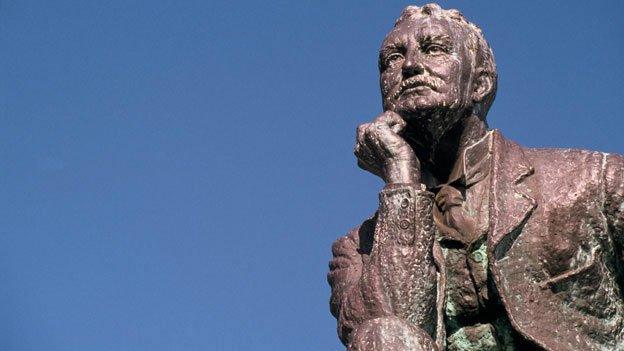Cecil Rhodes: Protesters demand Oxford statue removal
- Published
Protesters gathered in Oxford's High Street outside Oriel College, which owns the statue
Thousands of people have gathered outside an Oxford college to demand the removal of a statue of imperialist Cecil Rhodes.
A group of councillors earlier backed the campaign to remove it and called on Oxford University to "decolonise".
Twenty-six Oxford city councillors signed a letter saying the figure at Oriel College was "incompatible" with the city's "commitment to anti-racism".
Oriel College said it "abhors racism and discrimination in all its forms".
Campaigners said Rhodes, a 19th Century businessman and politician in southern Africa, represented white supremacy and is steeped in colonialism and racism.
A statue of slaveholder Robert Milligan was earlier removed from outside the Museum of London Docklands after mayor Sadiq Khan said any links to slavery "should be taken down".
At the protest, organisers from the Rhodes Must Fall group drew chalk crosses on either side of High Street in Oxford outside the college's entrance to enforce social distancing.
Protesters chanted "take it down" and then held a silence for 8 minutes and 46 seconds in memory of George Floyd - the same length of time a white police officer was seen to kneel on his neck.
The protest coincided with George Floyd's funeral in Houston. In London about 50 activists gathered at Nelson Mandela's statue in Parliament Square to observe a minute's silence in his honour before marching to Downing Street.
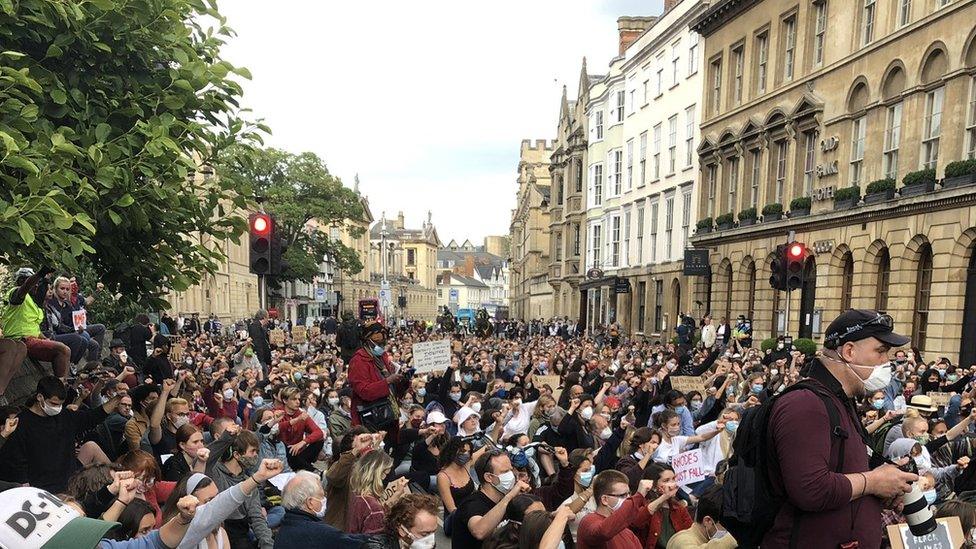
Protesters filled Oxford's High Street and traffic was rerouted
Oxford's two MPs joined calls to remove the Rhodes statue, which have reignited after the statue of Edward Colston, a 17th Century slave trader, was toppled in Bristol on Sunday.
About 240,000 people had signed online petitions by 19:30 BST calling for the statue's removal, while city councillors said in a letter that the "city's public art and monuments should reflect its values".
"The presence of this statue on our high street is incompatible with our city's proud internationalist heritage and commitment to anti-racism," added the letter, which was signed by most of Labour's 34 councillors on the 48-seat council.
City council leader Susan Brown did not sign the letter with her Labour colleagues but tweeted, external saying she had "great sympathy" with the campaign.
She urged the college to apply to the council for planning permission to remove the statue.
Because of its Grade II-listed status, she said, it could be "placed in a museum, such as the Ashmolean or the Museum of Oxford".
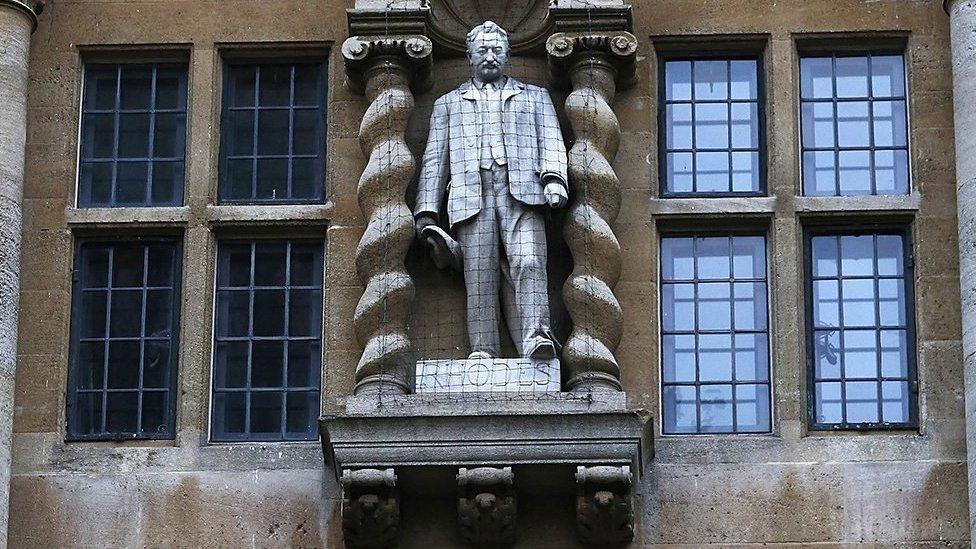
Protestors have been calling for the statue of the British Imperialist Cecil Rhodes to be removed for several years
Femi Nylander, Rhodes Must Fall campaigner, told the BBC the university needed to improve its representation of black students, "decolonise" its curriculum and remove the statue.
"They should not be continuing to celebrate this man," he added. "Having a statue is a celebration."
'Must come down'
In an open letter, external to the university's vice-chancellor Louise Richardson, a host of Oxford student groups and organisations said the university had "failed to address its institutional racism" and set out a series of demands to "make upholding anti-racist values a reality".
Anneliese Dodds, the shadow chancellor and Oxford East MP, said: "[The statue's] presence is a visible symbol of racism and prejudice for many. It is clear that there is now an overwhelming consensus for its removal.
"I support Susan Brown's call for Oriel College to seek a means of removing the statue."
Layla Moran, the Liberal Democrat Oxford West and Abingdon MP, said the Rhodes statue "must come down" but said she did not endorse "vigilante action".
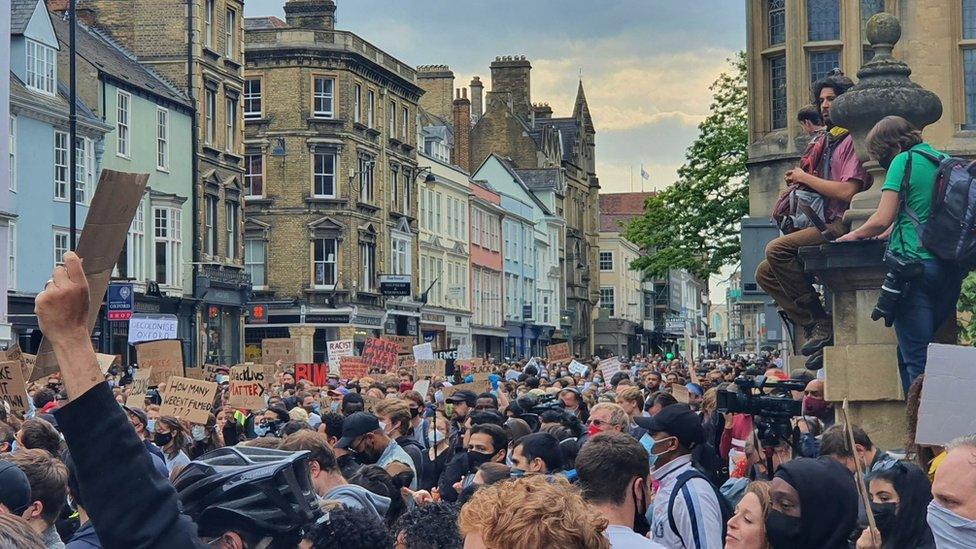
The protest observed an eight-minute 46-second silence in memory of George Floyd
In a statement, Oriel College said it aimed "to fight prejudice and champion equal opportunities for everyone regardless of race, gender, sexuality or faith".
"We believe black lives matter and support the right to peaceful protest. The power of education is a catalyst for equality and inclusiveness."
It earlier said it "continued to debate and discuss the issues" raised by the "contested heritage" of Cecil Rhodes.
Oriel College decided not to remove the statue in High Street in 2016 and said the figure "was a reminder of the complexity of history and of the legacies of colonialism".
It denied claims that donors threatened to withdraw more than £100m of funding if the statue was removed.
Thames Valley Police tweeted: "You may have seen a number of us out policing the organised protest today. We have been working with the organisers and the public to facilitate a peaceful protest & keep our communities safe.
"We would like to thank the public for their co-operation, patience & continued support."
Oxford University has not responded to requests for comment.

Who was Cecil Rhodes?
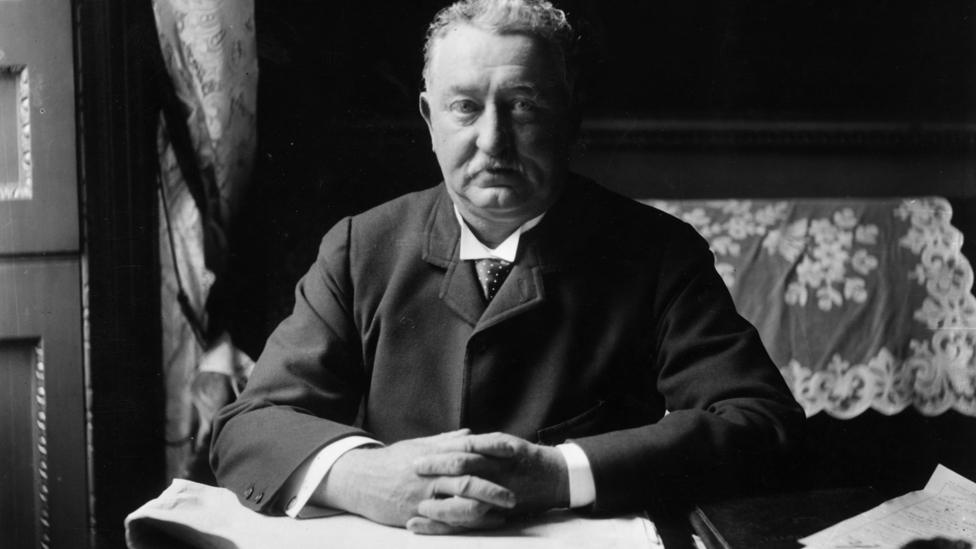
Imperialist, businessman and politician who played a dominant role in southern Africa in the late 19th Century, driving the annexation of vast swathes of land
Born the son of a vicar in Bishop's Stortford, Hertfordshire, in 1853, he first went to Africa at the age of 17; grew cotton with his brother in Natal, but moved into diamond mining, founding De Beers, which until recently controlled the global trade
Rhodes's bequest continues to finance scholarships bearing his name, allowing overseas students to come to Oxford University; among them former US President Bill Clinton
Controversial even in his own time, Rhodes backed the disastrous Jameson Raid of 1895, in which a small British force tried to overthrow the gold-rich Transvaal Republic, helping prompt the Second Boer War, in which tens of thousands died
- Published8 June 2020

- Published8 June 2020
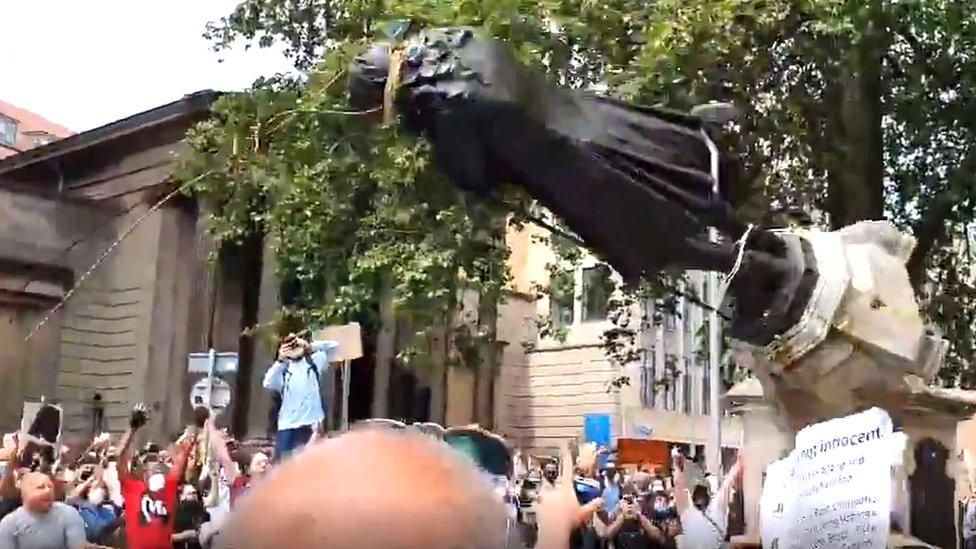
- Published29 January 2016
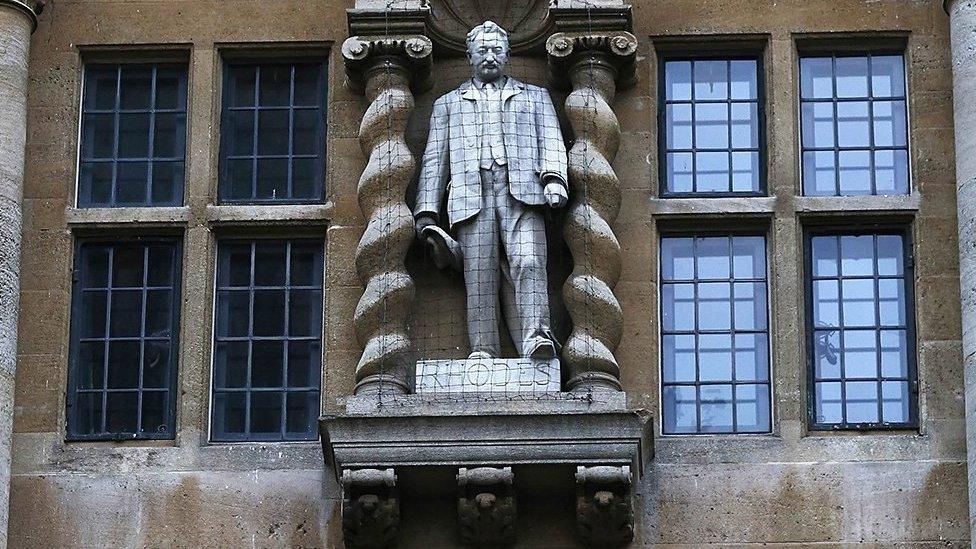
- Published1 April 2015
